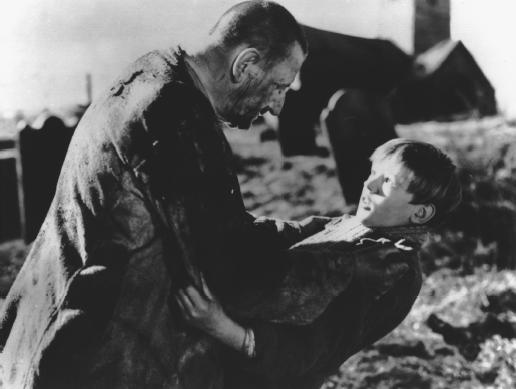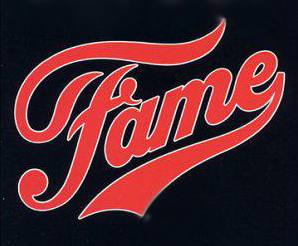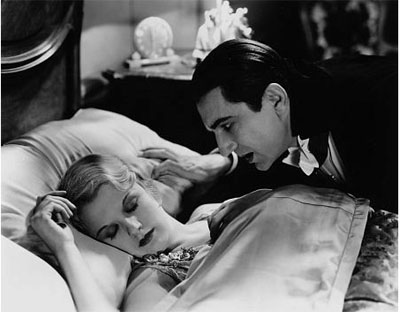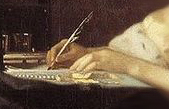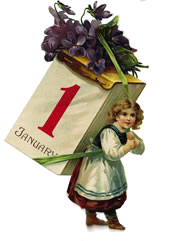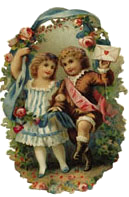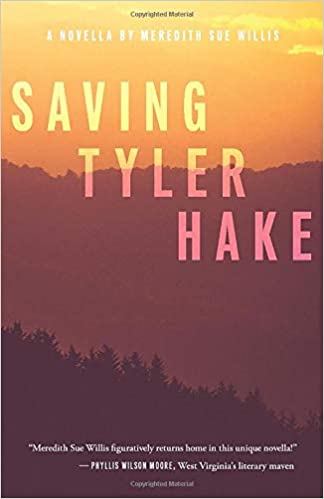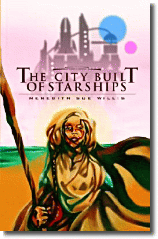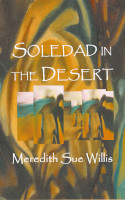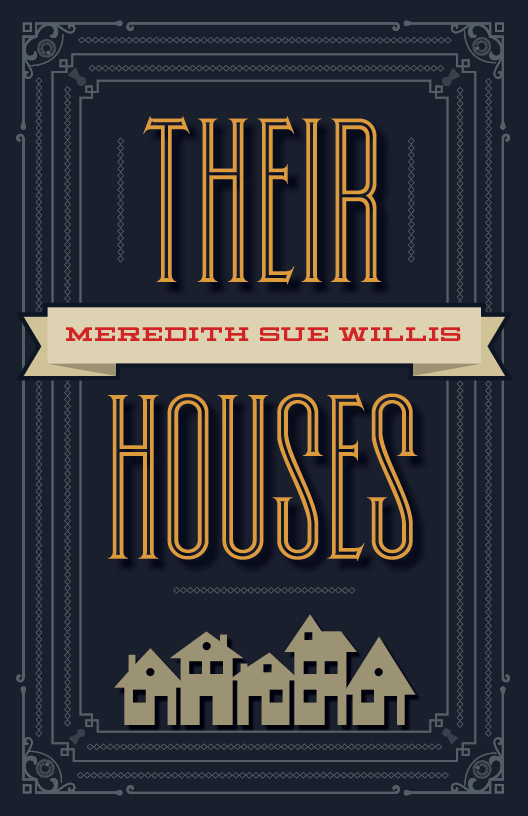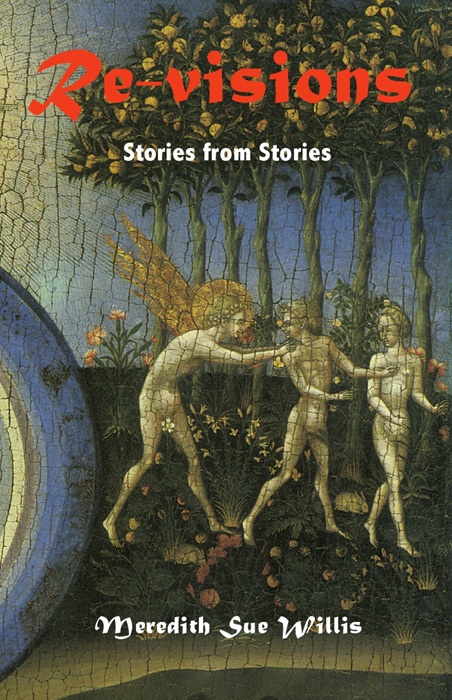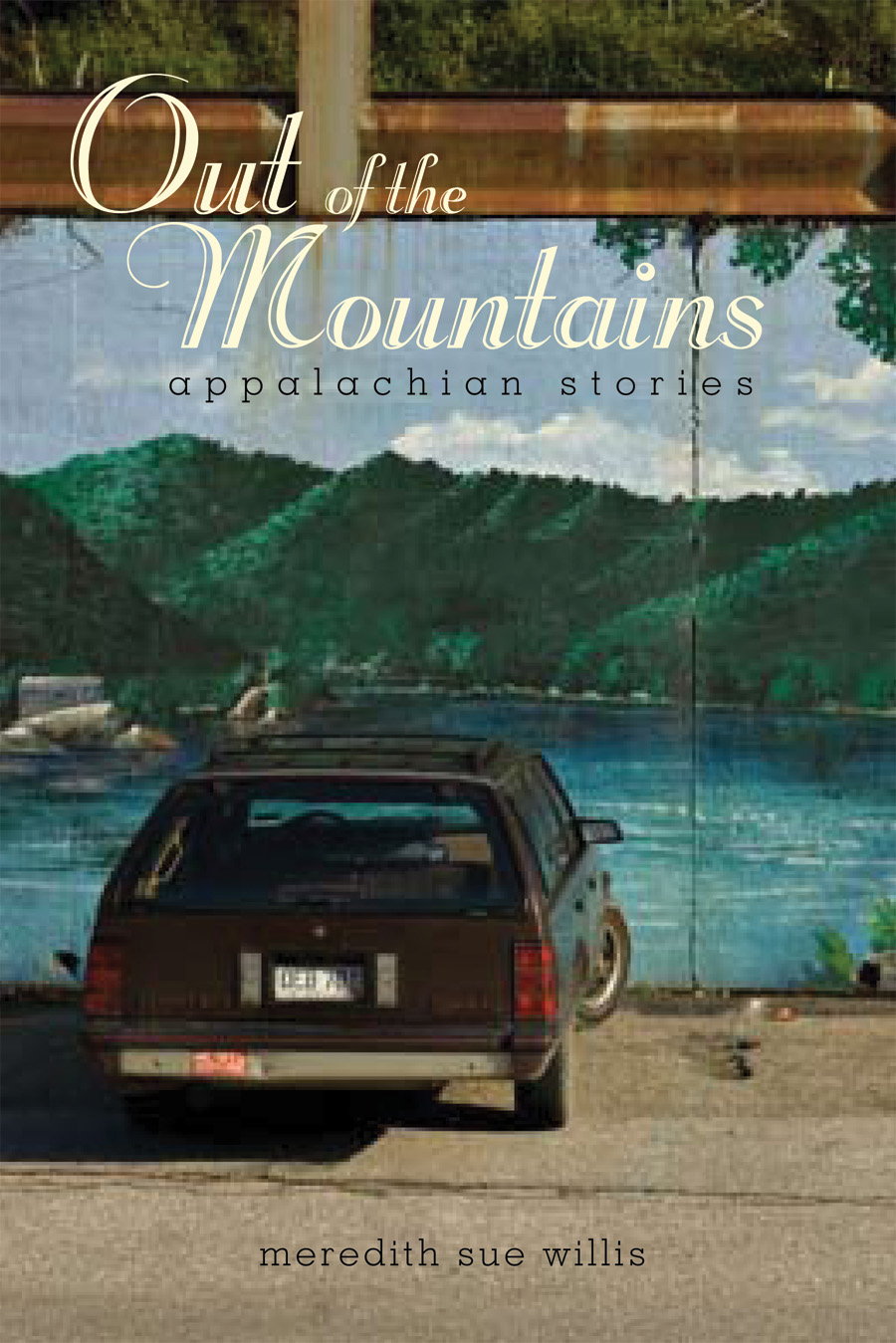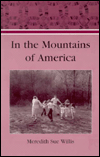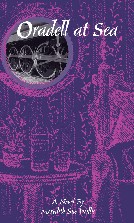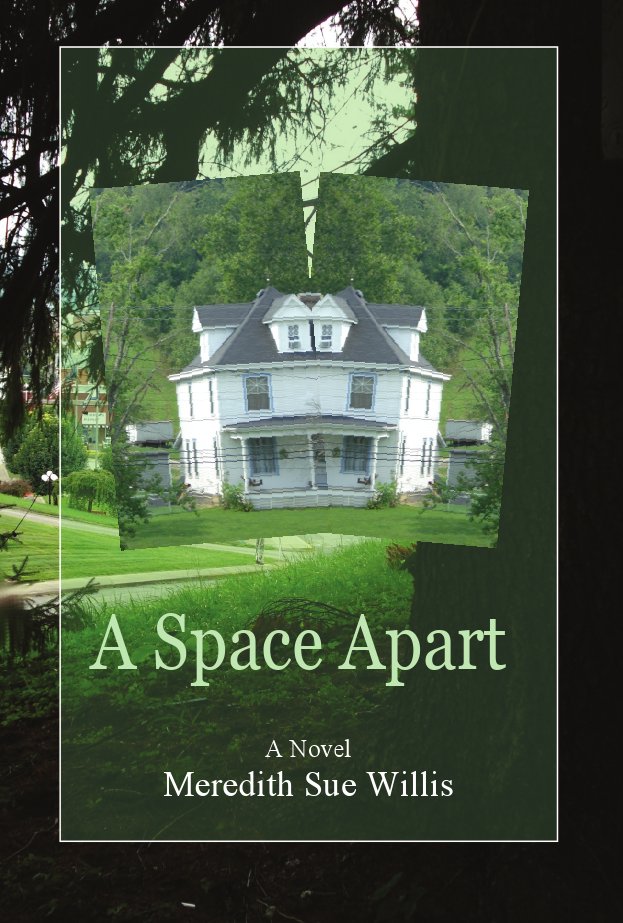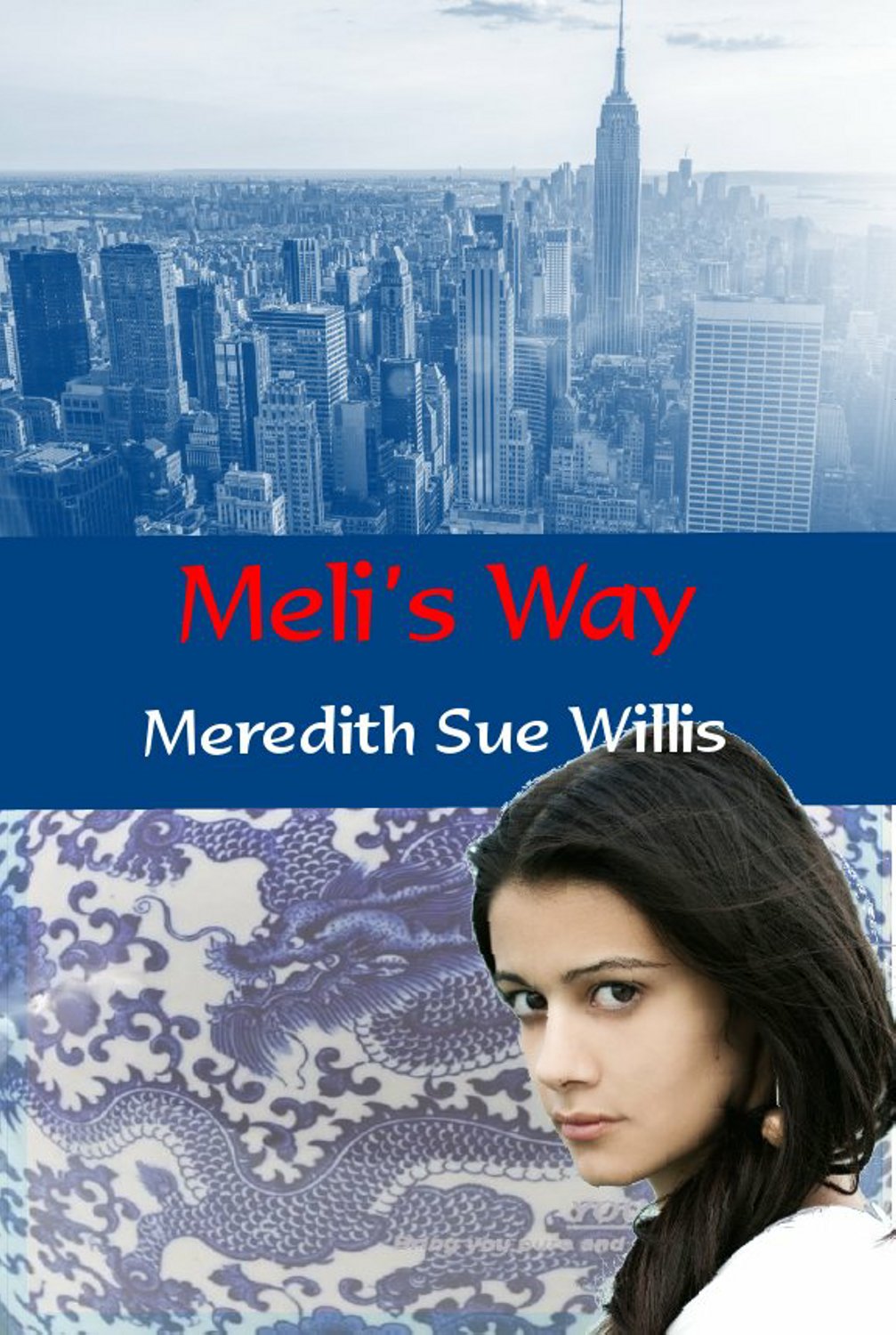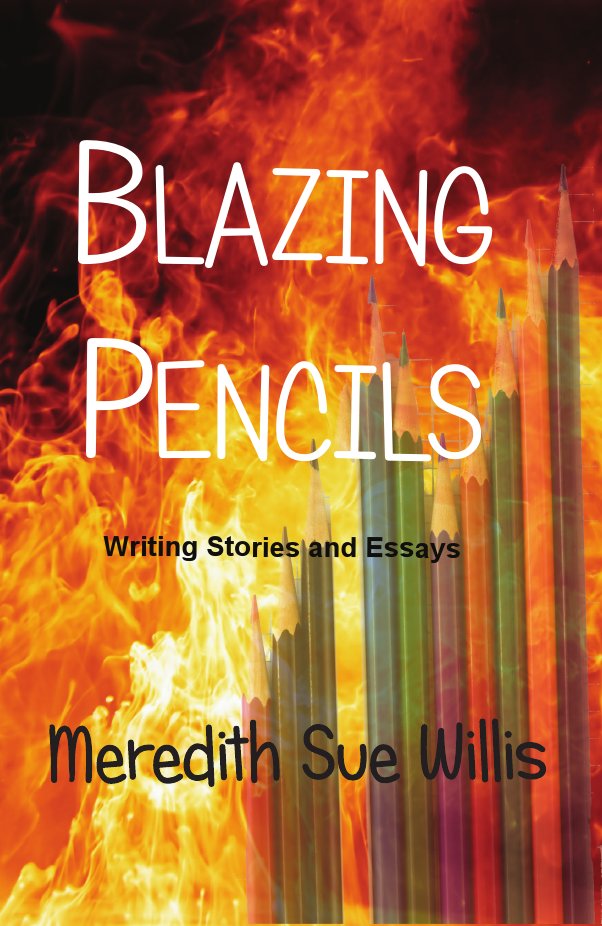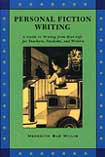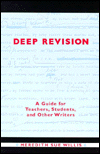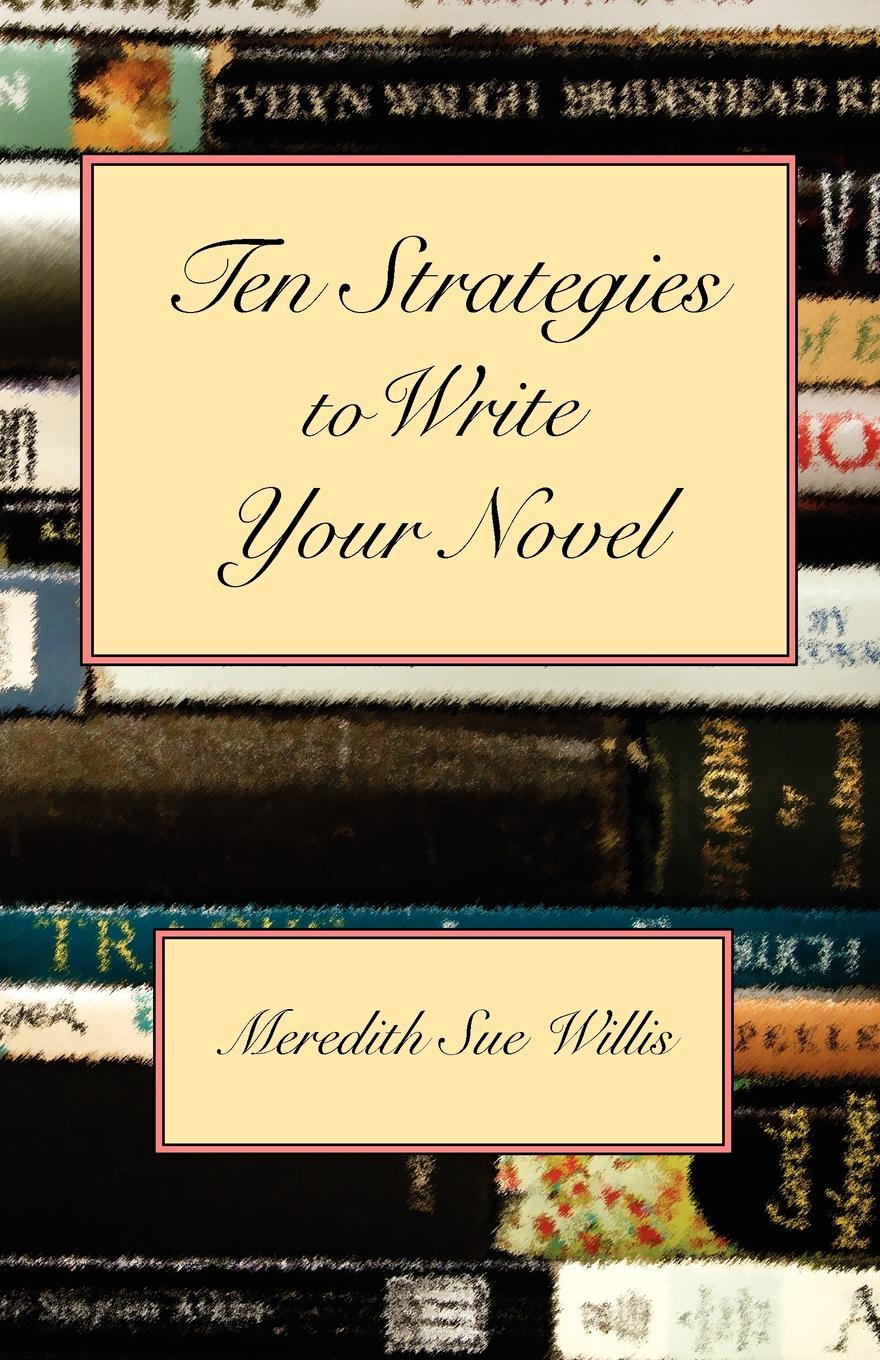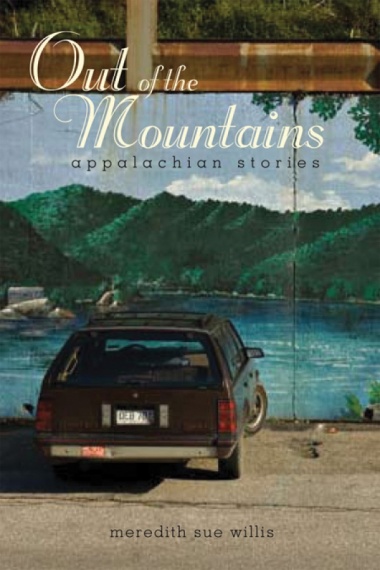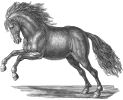Books by Meredith Sue Willis Samples of MSW's Writing Online News About MSW Biography
Newsletter for Readers and Writers Appearances, Publications, and Projects Online Classs with MSW
Services MSW Provides Resources for Writers Writing Exercises Journal of Practical Writing
[Housekeeping for Prose Narrative January 2025] For a lot more links, go here.
Contact
Today is
Writing Exercises 201-240 are on this page.
Exercises 1- 20
Exercises 21- 40
Exercses 41 - 60
Exercises 61-80
Exercises 81-100
Exercises 101 - 120
Exercises 121 - 140
Exercises 141 - 160
Exercises 161 - 180
Exercises 181 - 200
Exercises 201 - 240
Exercises 241 - 260
Exercises 261 - 300
Exercises 301 - 330
For writing exercises for kids, click here.
For teens, begin here.
Exercise # 201
Whenever I am short of material for my writing, or just looking for something to jump-start my imagination, I try writing about something extremely commonplace.
For example, write something with a dog in it. This could be a dog seen skulking among the garbage cans behind a restaurant, or it could be a beloved pet from childhood. It could be a pink poodle appliquéed to a nineteen fifties circle skirt. Just so it is a dog or something that resembles a dog.
Someday I'm going to write about my mother and dogs. She will cross streets to see them and she carries dog treats just in case. Here's a picture of her, Lucille, with a dog named after her, Lulu:
Exercise #202
I've been discovering the guilty pleasure of genre novels. Do you have a favorite genre? Mysteries? Romance? Sword and Sorcery fantasy? What's yours? Most of these capture us with their quality of "and then...and then...what next?...and then.." In other words, most of the best genre novels grab us with their stories.
Take some anecdote or journal entry or story or even a poem you have written in the past-- the more distant the better-- and try writing a little of it in the style of your favorite genre. If you have to insert vampires into a love poem, that's fine. Just see how it goes.
I was recently inspired by the excellent use in a George R.R. Martin sword and sorcery novel of multiple points of view. I decided to add more points of view to a novel I'm drafting, and I'm very pleased to have the new people represented. I've had what I think is an important insight, that a brief passage in a character's mind can act as an insight, a quick flash, that I don't have to know everything about the character from the inside, especially as other characters observe this one too
.
Can you think of some quality or technique you admire in your favorite type of genre writing? Maybe the suspense of a mystery or the action sequences of a thriller?
Turn to something you've written recently, even if it's something lyrical or in the form of memory, and add a passage that uses something your admire from genre novels. An action scene would be a good choice, or perhaps a summary of the past, the way science fiction often has to bring a reader up to speed date on the invented history of the world.
Exercise #204
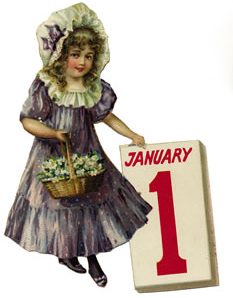
It's the beginning of a new year, so it is appropriate, if not clichéd thinking, to consider new beginnings. January 1 is not, of course, the new year for all cultures, and for people like me who were part of a school teaching family, the fall return to school always felt like the real beginning of new things.
But, for this exercise, let's stay with the conventional Western New Year and write a new beginning to an old story or chapter or scene.
Pull something out of your files and give it a new opening paragraph. Try for an entirely different approach or perhaps even a new point of view.
If you don't feel like going back to the old text that follows, keep going on the new thing.
Exercise #205
This is a pretty direct exercise. Write the dialogue (and anything else you want) that goes with this movie sceen. (For the Novel it comes from, click here.)
Exercise #206
Put a piece of fruit in your writing. Begin by visualizing it with your senses (its smell, its heft, its color and shape, etc.), and then go anywhere you want with it.
Here's an example from one of my in-process manuscripts. I wrote this exercise in a class once, and used it this way:
He reached over the table to take my hand. His wrist had passed too close to the food, and there was one grain of rice stuck to his wrist bone. "I have something for you," he said. I had this awful cringe that it was going to be a ring, but no, out of the canvas newsboy bag he'd been carrying, he pulled a white box stamped with a fancy gift shop name.
I opened it, pushed aside the crumpled paper, and found an utterly simple utterly splendid crystal pear.
"It's a paperweight," he said, "but it seemed clean and strong, like you."
He really was a darling. I held it in both hands, a perfect pear, a lovely pear, heavy-bottomed like me, a pear resting in my hands, the stem incised lightly in the top, a hint of abstraction against the fullness of the fruit.
"Martha," he said, cupping his hands around my hands around the crystal pear, "you have made such a difference in my life. I know you only love me in a certain way. But love is love, if it's real, when there's so little time."
"So little time for what, Robby? Who said there's so little time?"
"I don't know. I didn't mean that." His eyes were raking over my face, very wide, wetness in them making him glitter. "There's so little time because it all changes so fast."
Exercise #207
Below is a lovely little passage of one character reacting to another character's feet from Kiran Desai's Hullabaloo in the Guava Orchard. Try writing a passage about feet, or with feet in it. The feet may be an adult's feet, baby's feet, ugly feet, cooked chicken feet-- just feet. Here's the example, but yours could be entirely different.
Sampath was transfixed. Miss Jyotsna kicked her feet up in the air. (What red toenails! Jewel-like, beetle-like, beautiful red toenails!) His ears felt as if they'd been dusted with a light coating of paprika
(Kiran Desai, Hullabaloo in the Guava Orchard, (New York: Anchor, 1998) p. 31.)
Exercise #208
Write a scene with physical force in it. It might be police and a shoplifter or an army and demonstrators. It might be physical force for someone's own good. For an example of this, read the short story The Use of Force." This brief story, probably autobiographical, is by the poet and pediatrician by poet William Carlos Williams.
Exercise #209
Read this contemporary short story by Margaret Atwood, "Happy Endings." Using it as a model, write a story about a relationship that gives various alternative versions, or at least alternative endings.
Exercise #210
In Vermont they call it "mud season," but I am always struck by the clean lines of March: the branches swept of all leaves, so that, looking out my window into my back yard, it appears that we are living in a zone of lace.
Write a March story. It may have something to do with college basketball or the weather, or Julius Caesar, but get something seasonal into a passage of fiction, personal narrative or poetry.
Exercise #211
Are you having trouble with plot in your novel or other prose narrative? Try this exercise: think of your characters and incidents and setting, then sketch out briefly some of these scenarios:
1. Write a paragraph making up a mystery plot using your people, setting and time span.
2. Do the same thing, but sketch out the plot of a spy thriller: it doesn't have to be Russia and USA spies, it could be industrial spies, or local pizza parlors looking for secret sauce, or whatever. The point is to imagine your material in this form.
3. Do it again, but as a romance: couple meets, are separated by circumstances, misunderstandings, have to overcome obstacles, happy ending.
4. Choose any other genre you know a little about and write a paragraph sketching the story using your material.
The point of this is not to turn your idea into genre, but to see if there is some element in a genre version that might help you form your plot: Does your love story need more obstacles? Is there a mystery (not necessary a murder) or a quest that is implicit in what you've written, but that you might heighten and emphasize for plot?
Exercise #212
Exercises Using Celebrities
In one of my writing classes we started talking about celebrity lives, and what celebrities mean in the culture of the United States. Here are some exercises to try:
Write in the voice of a celebrity of your choice (perhaps someone who has died): My Confession, or maybe What I Have Learned from My Life and Movies. The idea would be to create a character using your own knowledge of, feelings about, some actor or celebrity-- make it fiction, of course.
Write The Five Husbands Of... (or The Many Loves of...) and create a celebrity who is famous for her or his love life.
Write a story from the point of view of one of the husbands or girlfriends of a celebrity. (Can be third person).
Write a story from the point of view of a private or overt stalker who is obsessed with some public figure. (Can be third person. Violence not required).
Exercise #213
One good way to write poetry is to imitate poems you like, so you might want to sign up for a Poem-a-Day or look at Halvard Johnson's Poetry Blog
Meanwhile, I have been composing haiku as I do my exercise with my Nordic walking sticks. Haiku works nicely because they are short (and I have to memorize what comes to me when I'm walking). Also, the syllable counting seems to go nicely with physical movement-- and, along with the 5-7-5 syllable format, the other standard requirements for haiku are nature (I'm out-of-doors) and a little surprise. So I recommend taking a walk, counting out a haiku for yourself and memorizing it to bring back to the pencil and paper or keyboard. Here are a couple of mine (no laughing--I'm primarily a novelist):
Palest green scumble,
Tan fluff and small maroon buds--
It's haiku season!Realm of green below,
Yellow, purple, pink between–
Over head, it's red!
Exercise #214
Read this passage from a novel-in-progress by Elizabeth Derby:
... I've never been this dedicated to my writing before. It's amazing how easily the words flow, how real the characters seem to me. When people talk about the 'muse', this must be what they mean. I feel like I have a waterfall of stories inside of me, the shapes and details so real, and they're constantly flooding against the dam of my daily life. I feel them gather with greater and greater force, spreading through my mind, my eyes, until they fill everything, my thoughts, my eyelids when I close them. If I don't open the gate as frequently as possible, I'm truly afraid I will drown....
Write a passage in which you describe what it feels like when your writing is going really well.
How about when it's going badly?
Can you do the two versions in the form a a free verse poem?
Exercise #215
Using Stereotypes
This is one to do with a friend, or in a group or class. All participants write on a slip of paper a typical or even unacceptably stereotypical character (Martini slurping WASP guy? Complaining old lady? Asian with a camera?). Everyone passes to the right, and then, using the stereotype you received, write a fuller, deeper, more "rounded" or surprising version that turns the typical into a real character.
Here's a sample by Daria Solovieva:
Giggling Asian Girl with Camera
She snapped the photographs laughing, covering her mouth as she laughed, which made it hard to hold the camera steady, so she had to ask again. "Step please more to side– next flowers please? Thank you very much thank you!" Then more laughing till she almost dropped the camera again, and they rolled their eyes over the silly foreigner. "You are so real Americans!" she exclaimed between bursts of hilarity. "You make my picture American. Move please over more thank you more thank you!"
It was a white light day, sun rays vertical, tree branches bare and whitened, so much light and nothing to obscure the details which would show up very nice thank you thank you!
Her hands were almost too cold to press the shutter button, and she was very tired of showing her teeth in a Western smile, but she could feel success. This was her destiny, to frame stupid condescending Americans but, as she pressed the button, move the camera to the left, capture the entrance to the target instead, then its low first storey windows, then the alley to the right with the simple padlock on the gate.
The pictures would come out very well....
Exercise #216
Write a monologue for a person you have observed but never actually spoken to. Begin by writing a short physical description of the person, then write what is going through the person's mind. This might be memories or stream-of-consciousness--whatever comes to you.
Do a second version in which the person is saying this aloud, directly to you (or to your main character). What is the situation? Who initiated the conversation? How much of it works as a monologue-in-dialogue, and how much do you need to adjust or change? Remember, when people are talking, one often speaks at length-- that is totally natural, to tell another person a story.
Exercise #217
What is she thinking? What is she drinking?
Exercise #218
Vampires have been extraordinarily popular in recent years, especially in popular narratives both in novels and in cinema. Try to put a vampire in something you're writing: a story or a poem or even your memoir. This can, of course, be a joke about a vampire or a reference to Bela Lugosi or any other way you can find to meet the challenge.
Exercise #219
At a recent writers' conference, I visited a session where we were asked, as an exercise in thinking about texts that are not written and read, to make a list of phrases or lines of songs or religious quotations or catch phrases, or anything else that we just carry around in our heads.
Try this. On a sheet of paper, make a list, as quickly as you can, at least ten of them. Mine included:
She gathered up her skirts... (like Cinderella fleeing the ball)
What is, is (something a fried of mine often says)
He has a lot on his plate (Something another friend says)
My luv's like a red red rose (Line of Renaissance poetry, Herrick I believe)
Reader, I married him.. (line from Victorian literature-- Jane EyreI)
In my father's house are many Mansions
Consider the lilies of the field..Solomon in all his glory is not arrayed lie one of these. (last two roughly quoted from King James Christian Bible
Women were born to suffer (something my mother sometimes said to my continuing distress!)Use one of mine or even better, one of your own as the opening line. Write for at least fifteen minutes, whatever comes next: a poem, a bit of memoir, the opening of a story...
(Thanks to Professor Amy Wright)
Exercise #220
The heat is on here in the Northeast in Summer 2011. Make a list of heat words.
blistering
grill
cooking
boiling
red-hot...
Now pick ten of your favorites and use them in a short essay, poem, or flash fiction story.
Exercise #221
One of the most amazing things fiction can do is explore the inner life of characters. This is part of the richness of reading fiction, but going inside out characters is also one of the best ways to get deeper information about characters as you write.
Try writing "confessions" for five very different people in the form of internal monologues. These might be characters in a novel or story you're writing, or just five people who interest you. Do each of them in the first person, and have them "confess," not to something bad, but just the truth as they see it.
Exercise #222
After the Storm at the LakeIt's vacation again, and we delight in lovely weather, are dissatisfied when the weather is stormy and stops our planned picnic or bike ride.
Write a passage describing a storm you remember, and then, either as memoir or fiction, tell what happened during or after the storm: do the lovers find themselves alone after running for shelter in a garage or barn? Is the garden party spoiled? Do people take of their shoes and dance in the puddles?
Exercise #223
The last writing exercise was about storms and weather-- and that was before the East Coast of the U.S. was hit with an enormous Hurricane that did tremendous damage! Electricity was out for many people; others had to stay in shelters or go without hot water or other things we assume are a normal part of everyday life.
Write a scene from your real life or a fictional scene in which a group of people is in some way deprived of the usual amenities we think we have to have. It could be a cabin with the road washed out or a Red Cross shelter, or simply an ordinary home that temporarily has no Internet access or television. How do people act? What do they do? Are there conflicts, either funny or serious?
Exercise #224
"I am writing to say...."
(1) Continue this story.
(2) Continue it again-- using a different mode of writing from your ordinary one. That is, if you usually draft on a keyboard, write in a small notebook or vice versa.
How different are the two? Does the mode of writing come into the plot or story line? Can you make it?
Exercise #225
Good parody requires a knowledge and appreciation of the style you are parodying. Here's a funny old Onion piece called "Ask Raymond Carver," which makes the late short story writer into an advice columnist. Carver is a wonderful writer, but his stories are often full of quotidian events, tensions between men and women, and drinking.
Pick a writer you really admire and feel you could learn from, and write at least a paragraph of parody. That is, try a paragraph in the same style as your writer, but go to extremes. If you choose Hemingway, make many, many short declarative sentences. And don't forget the bullfight!
Exercise #226
Write a short story or anecdote in which a person tells the story of their life. You can put yourself or another character in the piece to receive the story, but focus on the teller. "Did you ever wonder how I got this scar?" or " I always wanted to be a doctor." A beautiful example is Grace Paley's story, "A Man Told Me the Story of His Life."
Exercise #227
"The man was walking down a deserted street around two a.m., having just left the corner bar. He moved quickly but unsteadily. Suddenly, out of an alley came three boys. They grabbed him and dragged him behind a garbage toter and began to..."
Try re-writing this passage in a close third person point of view. Concentrate on how the world looks to the man. What does he feel physically when he is "grabbed and dragged?" Are there smells? What sounds? This is an exercise in imagining a bad experience the way a person feels it, and it's harder than you may think.
Exercise #228
In honor of Halloween and the important technique of using internal monologue to explore character, write a description of your favorite monster-- Count Dracula, Frankenstein's monster, Freddy Kruger-- whoever you like-- and write the monster's own version of events....
Exercise #229
Write about a time you experienced some natural event that causes hardship-- a powerful blzzard or a freak snowstorm in spring or fall. Was your power out for many days? An earthquake? A hurricane or tornado? Write as much as you can of the details of what the experience was like, how you and others coped.
Write again, fictionalizing. Keep the remembered details, but change your age or circumstances, or take yourself out of it and put in a character. Change the ending....
Exercise #230
Write something with a child and a dog in it. This has the potential to be sickly-sweet-sentimental: don't let it be! Write a real memory from your own life, or a real observation.
I read an article in today's New York Times in which a scientist-mother observed her two year old son and their four year old dog for a week, trying to figure out who was smarter....
Exercise #231
Someone gives you or a character a gift. You or the character don't want this gift. Maybe the giver is someone you love, but the gift is old fashioned or inappropriate. Or, maybe, the gift is exactly what you want, but you don't like the giver or the way it is given. Describe the circumstances, then tell what happens.
Exercise #232
As you come home one evening, there is a sound of a cat mewing (or substitute domestic animal of your choice: dog whining, parrot saying "hello," etc.). You look around and see...
Exercise #233
'Tis the season for lots of cooking--baking, party hors d'oeuvres, family feasts, and much much more. Write a scene- from your life, as part of your novel, as a start for a story (or as a start for you-know-not-what). Begin with someone cooking or baking, chopping or mixing egg nog. Include the steps for making the food in some detail. Even if you aren't a cook, imagine the steps of chopping vegetables for a raw salad plate or some task you know how to do.
As you write, let something happen. The character thinks about the people the food is being prepared for. A murder is planned-- maybe one stuffed pepper is poisoned. Or, perhaps the novice cook fails miserably-- or humorously.
Let the action of food preparation lead you to an idea or a memory.
Exercise #234
It is the beginning of a new calendar year-- an arbitrary but useful point in time. This is an exercise about beginnings. Write a piece about a First Time: Some of these are obvious and popular: my first day in a new school; on a new job; first kiss etc. Feel free to write one of the standards for yourself or your fictional character, but also consider some more precise and unusual firsts: The first time I tasted cilantro. The first time I had to sing in public. My first toothache. Having my first baby, strike-out, etc. etc.
Notice that the first set of prompts leads to a narrative; the second set of prompts begins with the physical senses and leads-- where?
Exercise #235
We're approaching the holiday celebrating the birth of Martin Luther King, Jr. There are many famous black and white images of Dr. King and others during the Civil Rights era-- Dr. King speaking, hoses on demonstrators, the lunch counter sit-ins, Rosa Parks, etc.. Choose one of these images, and either from memory or from images on the internet (try clicking here, for example) describe the scene as fully and as objectively you can. Then expand or write again, imagining that you are a witness or participant.
Exercise #236
I was at my writers' peer group last night, discussing a member's story. We had an extremely lively discussion in which we respectfully disagreed with each other-- respectfully but very energetically.
The question centered on whether the story should be much shorter-- or much longer.
Try this: Take a piece of your own in-process writing-- a short story or scene or real life anecdote-- and try cutting it down by almost half.
Then try a version in which you double its length.
Obviously this is an arbitrary exercise, but I'm a strong believer that our creativity will often rise to the challenge. I know that rigorous cutting is almost always good for a piece of writing. Can expansion also be good?
Exercise #237
Hearts and flowers! Much selling of anything chocolate, red, heart shaped! Write a memory or a story or a scene or a poem with a heart in it. This does not, by the way have to be serious. Nor does it have to celebrate love.
I remember my boyfriend who didn't have much money and offered to cook dinner for me-- and sautéed three quarters of a pound of chicken hearts-- small, rubbery, and a sort of purply gray color.
And also my first grade Valentine's exchange when I got cards for everyone in my class- except the boy who liked me so much he gave me a 5 & 10 cent store diamond ring. I didn't mean to skip him-- I thought. But was it a Freudian slip? Can you have a Freudian slip when you are six years old?
Exercise #238
What can you learn from feet? If you're interested in character (or even in plotting), it could be a lot.
Either do a real life observation, or (if you're already engaged in a long prose narrative project like a novel or a memoir), remember or imagine that you or your main character or someone else is looking at some feet. This might be in a waiting room, or from the perspective of being tied up and gagged on the floor, or working a shoe salesperson. Think up a situation where someone is observing feet, and describe them in detail, including shoes if appropriate, pants cuffs-- right up the ankle or a little above. Describe first, then speculate or look for clues.
Where could this take you?
Exercise #239
A writer friend of mine is just finishing a draft of a book that came out of some real family letters. Think back over family stories (or photos or letters, if you have them) to some family event that happened when you were extremely young-- or possibly before you were born. Change the names so you don't get caught up in the "real" facts, and then write the story.
Exercise #239
Freya Matthews-Whelan submitted this writing idea:
Step 1. Find a small phrase or paragraph from a novel or another interesting story
Step 2. Then finish off the rest of the short story.
She offered the following sample, the beginning of a story called "A Dark Brown Dog" by Stephen Crane. Can you finish it?
A Child was standing on a street-corner. He leaned with one shoulder against a high board-fence and swayed the other to and fro, while kicking carelessly at the gravel.
Sunshine beat upon the cobbles, and a lazy summer wind raised yellow dust which trailed in clouds down the avenue. Clattering trucks moved with indistinctness through it. The child stood dreamily gazing.
Then, compare your version to the original story.
Exercise #240
Write a passage in the voice of a peripheral narrator telling the story of some public figure. This is a typical ploy in many novels-- the most famous perhaps being The Great Gatsby told by Gatsby's friend Nick. The story is also, of course, always more or less about the narrator too.
Robert Penn Warren's All the King's Men focuses on "the Boss," Willie Stark, but the narrator, Jack Burden gets equal time. Try perhaps a famous politician or performer or someone who was famous briefly, and create a narrator who knew them back when and sees them with, perhaps, a jaundiced eye...
All MSW's Books
Buy via Bookshop.org--the online bookstore that splits proceeds with brick-and-mortar stores!
Novels and Short Stories for Adults
Books for Teens and Children
Books about Writing
E-book Versions of MSW books
(To buy any of these books as e-books, click on the image. They are also available at the
Kindle Store and at the Nook Store as well as the iBook store and other e-book stores.)
Lots of Links:
Articles for Writers
Biography of MSW
Blog
Books by MSW
MSW Classes Online
Adult & kid workshops
Book Reviews by MSW
Center for Writing Studies (grammar & more)
Contact MSW
E-Books by MSW
Fiction Online by MSW
Grammar-Word Study
Grammarist
Grammar GirlInformation about MSW
A Journal of Practical Writing
Kids Page
Literature to Read
and Study (online)Links for Writers and Readers
Manuscript Consultations
Newsletter on
Books and WritingNews
Nonfiction by MSW
Obituaries and More
Online Classes
Order Books
Order Books Online
Point-of-View Characters Who Are Not Your Gender
Publicity
Practical Writing Journal
Resumé
Resources for Writers
Samples of MSW Writng
Structuring a Murder Mystery NovelTeens Page
Tips for Writers
Upcoming MSW events
Videos of MSW
What's On This Site?
Who is MSW?
Workshops with MSW
Writing Exercises
WSM Technical Services
Writing Tips
Appalachian YA Literature

Taxicab Willis-Weinberger Extraoredinary Budgerigar
March 2006-March 30,2020
Irene Weinberger Books.... an imprint of
Hamilton Stone Editions
Check us out!
To receive MSW's free newsletter for readers and writers and notice of online classes and other MSW news, join her mailing list here:
Images and photos found on the various pages of this web site may be used by anyone, but please attribute the source when it is specified.
Meredith Sue Willis Author and Teacher is licensed under aCreative Commons Attribution 4.0 International License.

